MVP Development is a way to minimize the risks associated with their business venture. The typical process usually involves intensive market analysis, studying the target audience and competitors.
However, even this level of research can not guarantee the success of the business.
That is why, introducing an MVP (Minimum Viable Product) can be a great way to move closer towards your ultimate goal.
What Is MVP?

MVP, or Minimum Viable Product, is a product that has the primary features necessary to help users solve a problem in the marketplace. It’s usually the first version of a product and is released to test customer feedback before any further resources are invested in building up the rest of its features.
The MVP approach is a great tool for startups and entrepreneurs who prefer to use no-code development platforms rather than hire a full-time developer. Many of the world’s biggest and most successful companies have utilized MVPs as the basis of their business.
Some of the Biggest Companies that Started With an MVP
- Apple
- Amazon
- PayPal
1. Buffer
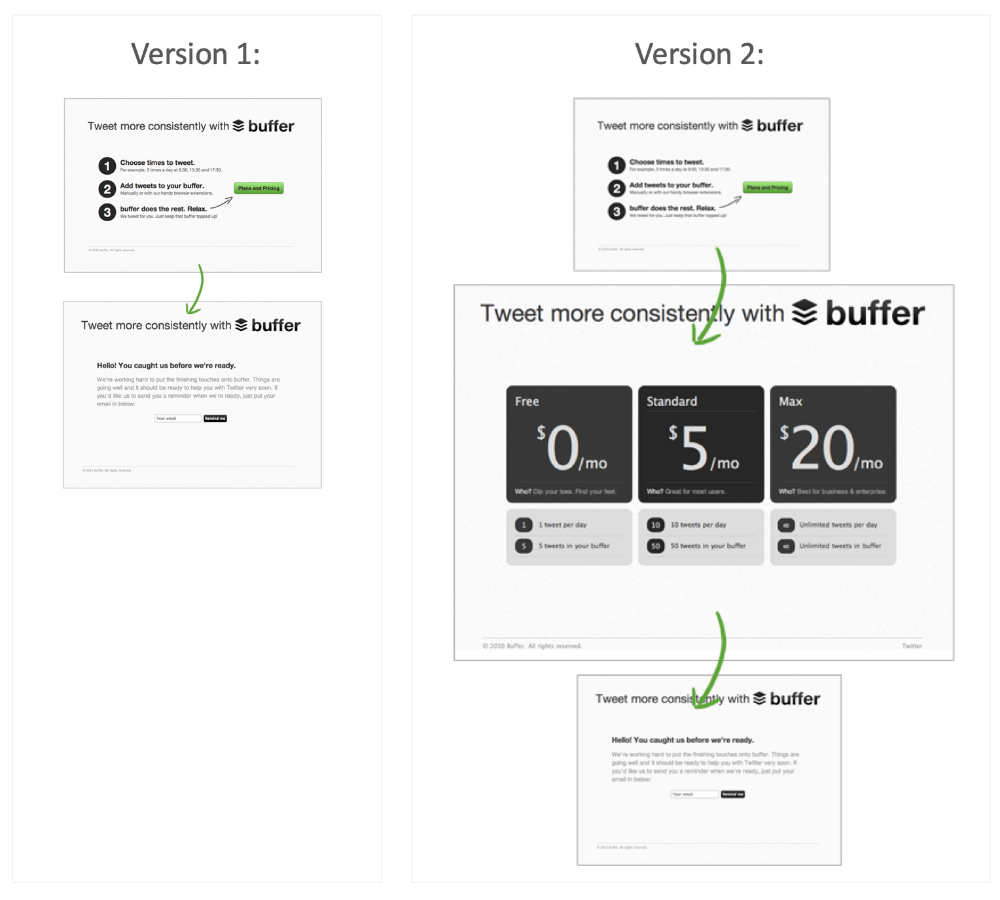
Buffer is an extremely beneficial and widely used platform that is incredibly popular among bloggers, businesses, and other enthusiastic users who post content online frequently.
Today, Buffer is known as a platform that allows users to schedule their posts on the majority of popular social networks. But what was its initial state?
It was an evening in London when the concept of Buffer began being developed. Its creator had the challenge of optimizing his Twitter posts when he decided to share news about startups and tech. People began to show their admiration towards his posts, this saw him search for a way of streamlining them.
He quickly noticed that if he continued to stay on the device all day long just to post, or indulge in uploading multiple posts at once, it would prove to be a lot for him and would not be efficient.
Therefore, to address this challenge he created the idea of a service that would allow him to publish tweets for the user at a scheduled and pre-determined time.
This saw him doubt himself and ask “Does anyone need this, and would anyone pay for it?”. But his doubts were diminished thanks to the encouraging feedback from the audience.
Nevertheless, verbal reassurance from the audience is distinct from a successful product. This saw the creator make a very basic but helpful MVP.
After only four days, the first user had already adopted this new service of pre-scheduling Twitter posts. Due to the continuous success since then, thousands of people from all around the world use Buffer, or any of it’s alternatives, to increase their performance on different social networks such as Twitter, Instagram, Facebook, Pinterest, TikTok and LinkedIn.
Therefore, the story of this successful business is a strong demonstration of the power of MVP development.
2. Zappos
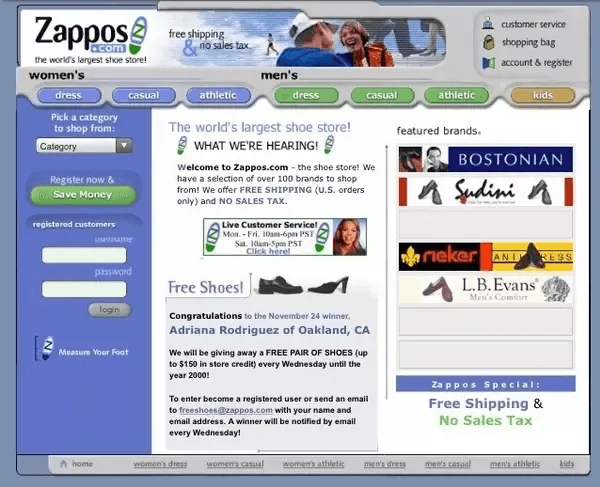
What makes the story of Zappos truly remarkable and inspirational is its history. It all began with an issue that Zappos creator Nick Swinmurn faced: it was hard for him to find that perfect pair of shoes at the mall.
His thought was “Why don’t I create an online store large enough so that everyone can find that ideal shoe, even for the most demanding taste?”. Thus, Zappos was born… albeit first as an MVP.
In the early stages, Nick knew it would be illogical to dump thousands of bucks into an idea that hasn’t been tested. The cost of setting up such a business contained:
- Paying Shopify experts or web developers;
- Product registration;
- Renting a warehouse;
- Equipment;
- Employee salaries;
- Establishing a connection with suppliers.
Nick chose to build the MVP: a website, uploaded pictures and item descriptions, and waited. Before long, orders were streaming in. After that, he purchased the goods from a retail provider and sent it to buyers.
When hundreds of shoes, boots, as well as sandals were sold, Nick and his associate Tony Shane were presented with the opportunity to purchase directly from suppliers in bulk. This allowed them to expand their selection on the website and to scale the MVP into a successful company.
And to be considered an outright success, the organization was bought by Amazon for $1.2 billion.
3. Foursquare
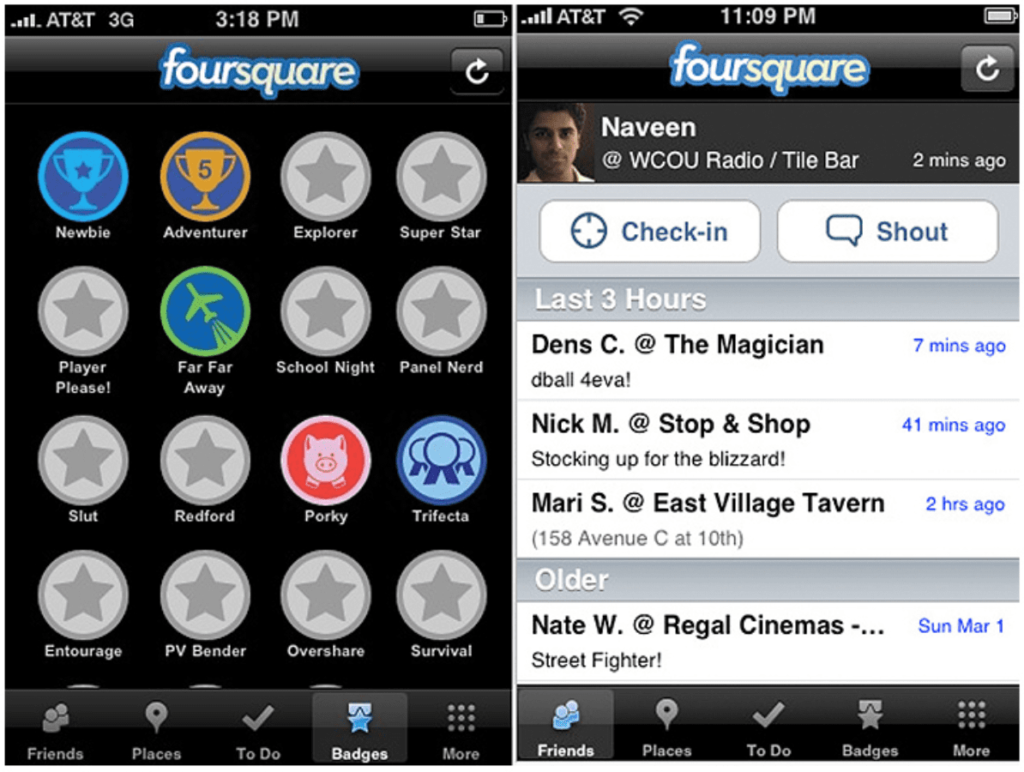
Foursquare is now the go-to app for millions of users to find restaurants, hotels, or shops when in an unfamiliar area. But it wasn’t always this popular; it started as an MVP and has come a long way since then.
In 2009, Dennis Crowley and Naveen Selvadurai launched the first version of Foursquare, an MVP that focused on location-sharing. It had two unique features that helped it become a success:
- Gamification. Foursquare users were rewarded with coins and badges upon completion of tasks, and could even gain titles and compete for a spot on the leaderboard.
- Data privacy. Attention was paid to the protection of Foursquare users’ data, making the app safe and trustworthy.
The first version of Foursquare was well-received by users, and after seeing its success the developers began incorporating other features, leading to what we know today.
4. Aardvark
Sometimes, we are left feeling baffled by questions like: “Who was the actor who appeared in The Dressmaker?” or “What book should I read next after Pride and Prejudice?”
Google might have AI algorithms designed to predict search engine inquiries, but some things are still best looked up by real people.
This is where Aardvark comes in. A successful service that ended up being acquired by Google in 2010 for a $50 million price tag, it originally began as an MVP.
Mechanical Zoo established Aardvark in 2008, with the goal of linking individuals who had questions with those who could provide answers. In the beginning, all requests were managed manually.
Only after proving the value of Aardvark, getting user feedback, and giving the product a spin did the creators move ahead with automating functions and investing money and other resources into the product.
Thanks to the testing period via the MVP, the team were able to show that their idea was more than feasible and keep their risks low. That is the strength that MVP can provide!
5. Glovo
Glovo is an incredibly popular food delivery business that serves as a go-between the customer and the courier. This amazing service enables users to procure items from a single package of butter to a full family holiday dinner in almost no time.
Featuring lightning-fast delivery, competitive prices, pleasant employees, and specials and discounts, it’s no surprise Glovo has caught the attention of customers from around the world.
When Glovo was first established, it aimed its discounts and services at one large group without segmenting them. As the user base grew astronomically, Glovo Engineering recognised the need to try MVP development for segmentation.
To reach this goal, Glovo opted to begin with three segments: new customers who have yet to make an order, people who order frequently, and those who placed an order or multiple orders and then quit.
The algorithms worked perfectly, giving accurate results and making it easier to compare ROI. This success encouraged the team to expand their MVP into hundreds of segments, eventually transforming it into a successful full-fledged solution.
6. Twitter MVP Development
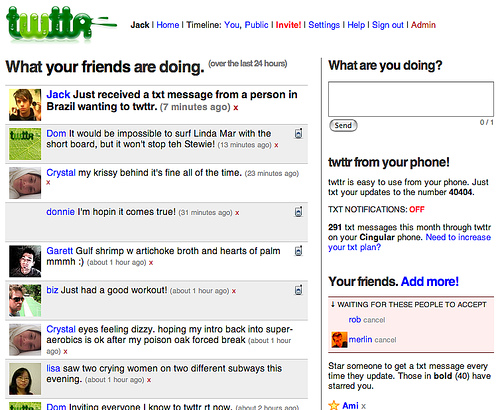
Jack Dorsey, Biz Stone, Evan Williams and Noah Glass are the ones behind the founding of Twitter. It began as a way to send messages among friends, yet it has developed into much more than that.
Initially, three friends had a shared idea and a vision. Now they have grown into an organization with a total of 4,000 employees across the world. Despite their lack of financial means and resources to kickstart a full-fledged product from the outset, the founders decided to create an MVP first.
7. Instagram MVP Development

When Kevin Systrom and Mike Krieger began, they had a simple thought: to create a location-based service known as Burbn. Yet, they chose to pivot towards a simpler route: Instagram.
They started with MVP development and it paid off, bringing Instagram to 700 million users and 1 billion photos shared daily. This example proves that an MVP is an extraordinary way to commence your startup trends expediently and inexpensively.
8. YouTube MVP Development
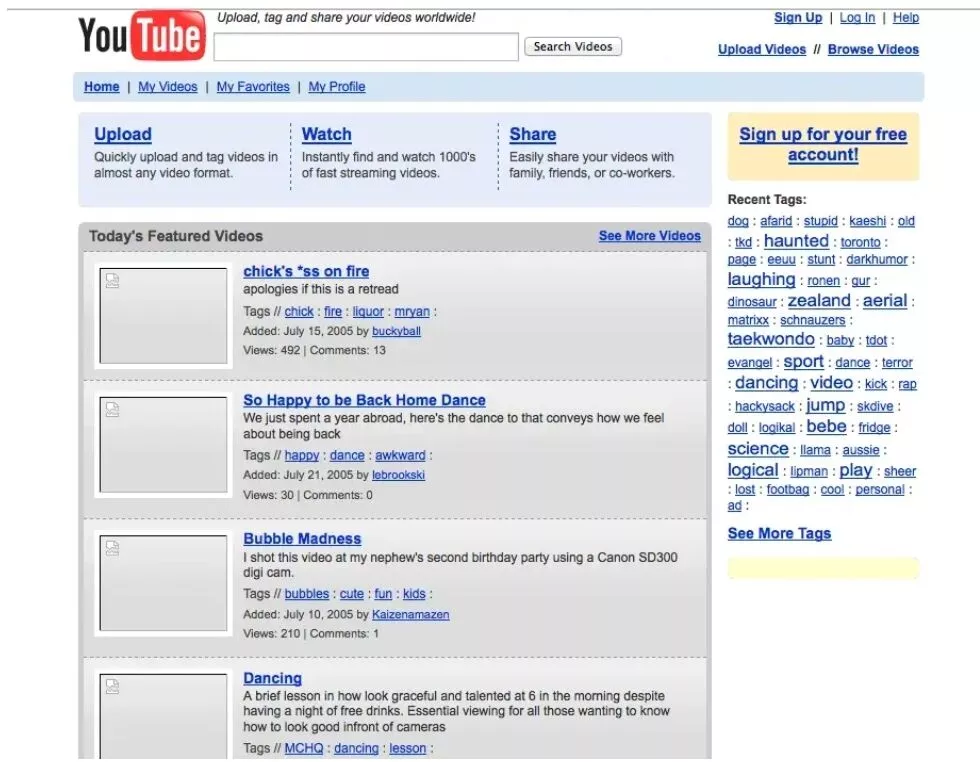
YouTube is a successful business that experienced success due to MVP development. When Chad Hurley, Steve Chen, and Jawed Karim had the idea for an online video-sharing platform in 2005, they started with an MVP and shared it with friends. From there, they continued to refine the product.
The power of the MVP was an invaluable factor in YouTube’s success, as it gave the founders the ability to receive feedback from users early on. This feedback helped them to:
- Understand what people wanted in a video-sharing website;
- Create an even better product.
The MVP model is also extremely useful when introducing new features to a product or service, providing the opportunity to test them before launching them to the market.
9. Dropbox MVP Development
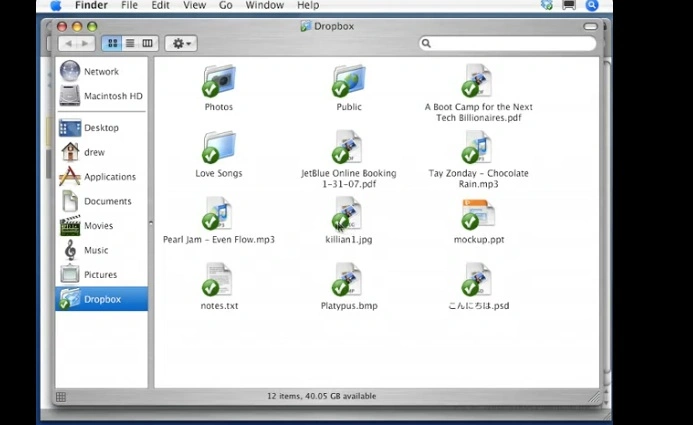
Founded in 2007 by American computer programmer Drew Houston and finally launched in 2008, Dropbox is an immensely popular cloud storage service with more than 400 million users worldwide.
When designing a product for the “Designing Innovation” class he was taking at MIT, Houston came up with the concept of Dropbox as a way to easily and securely share large files over the Internet. Utilizing Python and Django, the two popular programming languages used by developers, the entrepreneur developed a basic MVP to assess the response of his concept through interviews with family and friends.
10. Airbnb MVP Development

Established in August 2008 by Brian Chesky and Joe Gebbia, Airbnb is a renowned online lodging marketplace and hospitality service. Operating in a staggering 34,000 cities and 192 countries, the business has seen a tremendous amount of growth over the years.
It’s one of the many success stories which commenced with MVP development. The idea of renting out their spare rooms to travelers had been conjured up by the Airbnb founders, prompting them to put together a website wherein they could advertise their listings. It soon came to fruition that they had more customers than their rooms could handle, which led them to expand their offerings. Now, anybody is able to rent out their places of residence in any city or country.
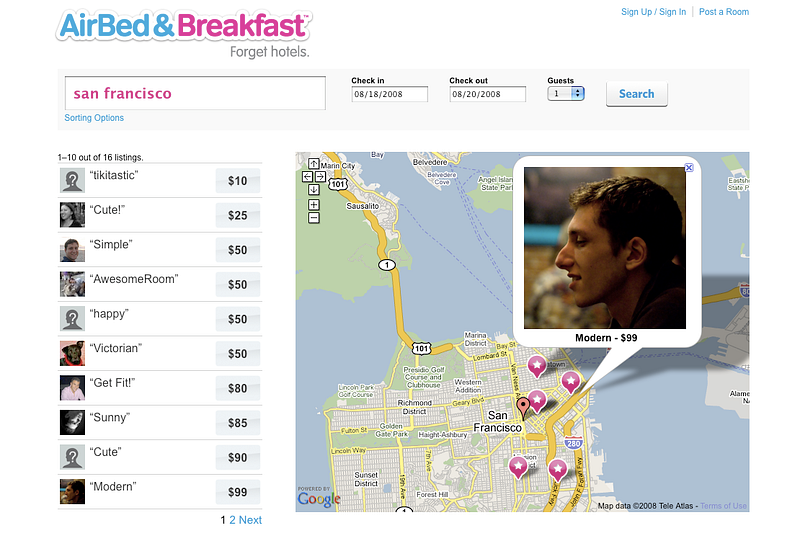
Final Thoughts
If you are striving to get your business off the ground and make it a success, MVP development is the way forward. It allows you to test out your product or service before launching, striving to make sure it meets your customers’ needs.
It is worth noting that there have been thousands of solutions in the world that have remained as MVPs and failed to become successful businesses. Nevertheless, these MVPs have managed to save developers thousands of dollars and hundreds of hours of work.
Subsequently, MVP development has also enabled testing on the ground before the official launch and improvement of some services. Consequently, it can be determined that MVP development is extremely beneficial and can help a business grow!
